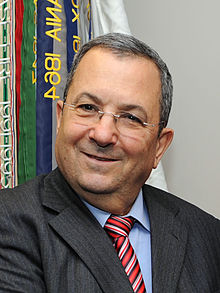Israeli Defense Minister Ehud Barak implied for about the millionth time on Wednesday that Israel may attack Iran if sanctions fail to fail to persuade Tehran to dismantle their civilian nuclear program.
 Speaking during a lecture at the Israeli Defense Force’s National Security College, Barak said the consequences of attacking Iran to prevent it from acquiring nuclear weapons would be worse than living with a nuclear Iran.
Speaking during a lecture at the Israeli Defense Force’s National Security College, Barak said the consequences of attacking Iran to prevent it from acquiring nuclear weapons would be worse than living with a nuclear Iran.
“I am well aware of the difficulties involved in thwarting Iran’s attempts to acquire a nuclear weapon,” Barak said. “However, it is clear to me that without a doubt, dealing with the threat itself will be far more complicated, far more dangerous and far more costly in resources and human life.”
Actually, it wouldn’t. A declassified war simulation run by the Pentagon forecasted such a “strike would lead to a wider regional war, which could draw in the United States” and would immediately get at least 200 Americans killed in Iran’s retaliation, not to mention heavy Iranian and Israeli casualties.
Furthermore, an attack on Iran for a nuclear weapons program it doesn’t have would probably result in exactly the outcome Tel Aviv and Washington claim they want to prevent: a nuclear Iran.
As Thomas Pickering, former Under Secretary of State for Political Affairs and former U.S. Ambassador to the UN under George H.W. Bush has said, a military strike “has a very high propensity, in my view, of driving Iran in the direction of openly declaring and deciding, which it has not yet done according to our intelligence, to make a nuclear weapon to seemingly defend itself under what might look to them and others to be an unprovoked attack.”
“If Israel will attack,” former chief of Israel’s foreign intelligence service Meir Dagan has said, “there is no doubt in my mind that this will also provide them with the justification to go ahead and move quickly to nuclear weapons.”
Even if Iran did get the bomb – which is unlikely – it would clearly not be anywhere near as bad as a US or Israeli first strike, which would start a new and protracted war in the Middle East. In the latest issue of Foreign Affairs, Kenneth N. Waltz, a renowned international relations theorist, argued that a nuclear Iran would have a stabilizing effect, causing them to become less bellicose because of the deterrence it would afford them. “In fact, by reducing imbalances in military power, new nuclear states generally produce more regional and international stability, not less,” Waltz wrote.


